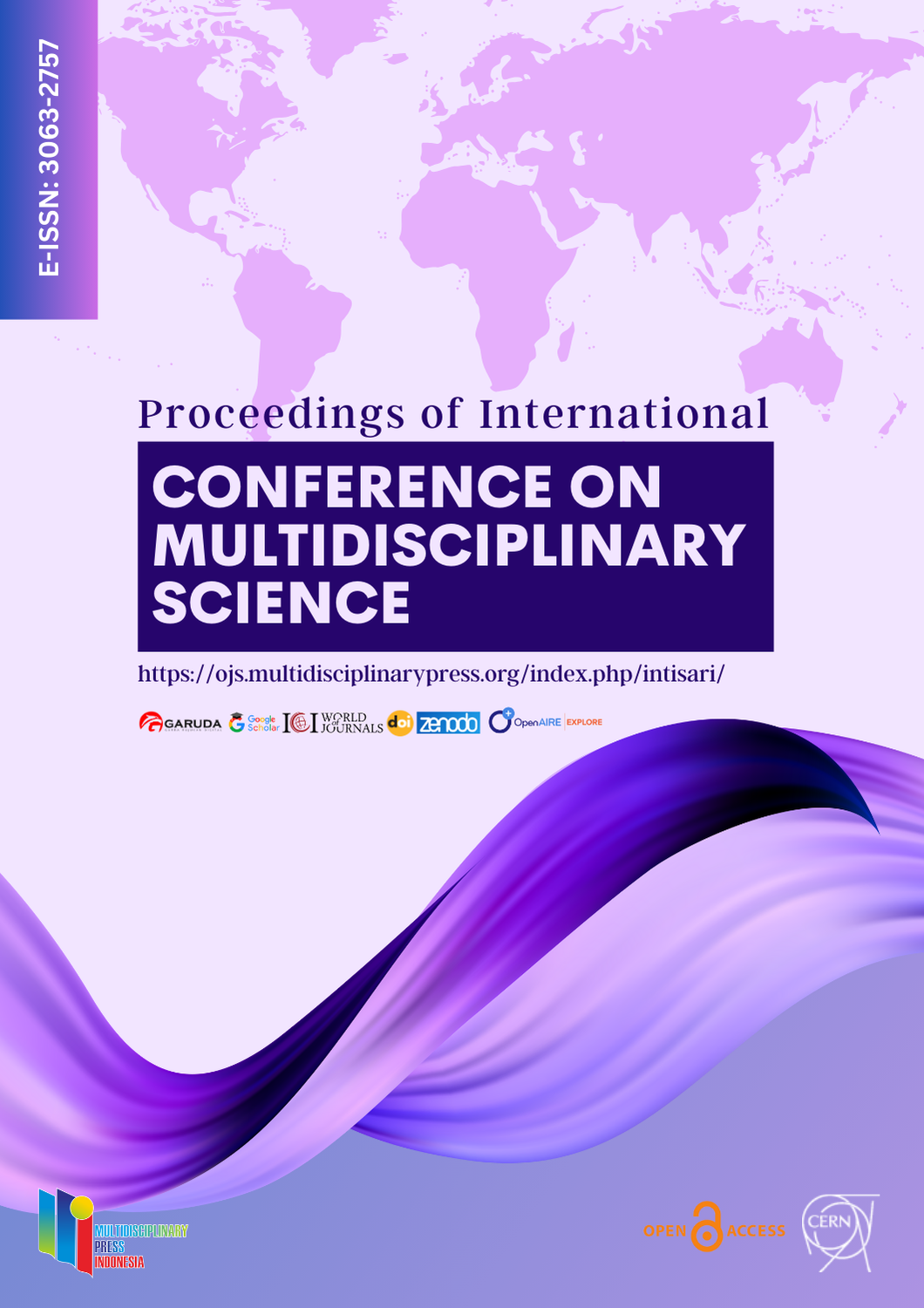Code of Professional Ethics for Police Members Who Commit Criminal Acts
Keywords:
Code of Professional Ethics, Police, Criminal ActsAbstract
The code of ethics is a moral and ethical standard that must be followed by members of the Indonesian National Police in carrying out their duties. This article discusses the role and impact of the code of ethics on members of the Indonesian National Police who commit crimes. In a legal environment, the code of ethics serves as a guideline for behavior that ensures that members of the Indonesian National Police act in accordance with the values of justice, professionalism, and integrity. When members of the Indonesian National Police violate this code of ethics, they face not only legal consequences, but also internal sanctions that can include reprimands, demotions, and even dismissal. This article also explores how enforcing the code of ethics can strengthen public trust in the police institution and prevent abuse of authority. This study uses a qualitative method with a case study approach to analyze various examples of violations of the code of ethics committed by members of the Indonesian National Police and how the police institution handles these violations. The results of the study indicate that the application of a firm and consistent code of ethics is a key factor in maintaining discipline and professionalism within the Indonesian National Police, as well as in improving the institution's image in the eyes of the public. In conclusion, the code of ethics not only functions as a supervisory tool, but also as a vital moral foundation for maintaining integrity and trust in law enforcement in Indonesia.
Downloads
References
Aini, Atika Rahmadatil. 2019. “Tindak Pidana Melalui Etika Profesi Dalam Menegakan Hukum Terhadap Terjadinya Pelanggaran Kode Etik (Studi Kasus Profesi Kepolisian Dalam Mengamankan Unjuk Rasa Di Kantor DPR September 2019)”. Fakultas Hukum Universitas Islam Sunan Gunung Djati.
Andi Hamzah. 2014. Asas-Asas Hukum Pidana. Rineka Cipta, Jakarta.
Anshar, Ryanto Ulil, dan Joko Setiyono. 2020. “Tugas dan Fungsi Polisi Sebagai Penegak Hukum dalam Perspektif Pancasila”. Jurnal Pembangunan Hukum Indonesia, Vol. 2, Nomor 3.
Arief, Barda Nawawi. 2010. Kebijakan Legislatif Dalam Penanggulangan Kejahatan Dengan Pidana Penjara. Genta Publishing, Yogyakarta.
Arief, Barda Nawawi. 2012. Kebijakan Hukum Pidana. Citra Aditya Bakti, Bandung.
Chaerudin, Syaiful Ahmad Dinar, dan Syarif Fadillah. 2008. Strategi Pencegahan Dan Penegakan Hukum Tindak Pidana Korupsi. Refika Editama, Bandung.
Dellyana, Shanty. 2009. Konsep Penegakan Hukum. Liberty, Yogyakarta.
Ginting, Gerry Putra. 2015. “Penegakan Hukum Oleh Polri Terhadap Tindak Pidana Pencurian Kendaraan Bermotor Dengan Kekerasan Di Kabupaten Sleman”. E-Journal Universitas Atma Jaya, Yogyakarta.
Kunarto. 2017. Etika Kepolisian. Cipta Manunggal, Jakarta.
Mas, Marwan. 2015. “Menyoroti Korupsi Korps Baju Coklat, Makasar”: Makalah Semainar Fakultas Hukum Universitas 45 Makasar, 9 Nopember.
Moeljatno. 2008. Asas-Asas Hukum Pidana. Rineka Cipta, Jakarta.
Nirmala, Puspita. 2013. “Peranan Propam Polres Jayapura Kota”. Jurnal Legal Pluralism, Volume 3, Nomor 2, Juli.
Nuh, Muhammad. 2011. Etika Profesi Hukum. Cv. Pustaka Setia, Bandung.
Rahardi, Budi. 2017. Hukum Kepolisian (Profesionalisme Dan Reformasi Polri). Laksbang Mediatama, Surabaya.
Sanyoto. 2012. “Penegakan Hukum Di Indonesia”. Jurnal Dinamika Hukum Fakultas Hukum Universitas Jenderal Soedirman Purwokerto, Volume 8, Nomor 3, September.
Soekanto, Soerjono. 2004. Faktor-Faktor Yang Mempengaruhi Penegakan Hukum. Penerbit Rajawali Pres, Jakarta.
Soesilo, R. 2005. Kitab Undang-Undang Hukum Pidana Serta Komentar-Komentar Lengkap Pasal Demi Pasal. Politeia, Bogor.
Taufan. 2023. “Pertanggungjawaban Anggota Polri Yang Melakukan Tindak Pidana (The Police Officer Who Committed a Crime)”. Jurnal Risalah Kenotariatan, Volume 4, No. 1, Januari-Juni.
Tololiu, Grendy John. 2019. “Proses Peradilan Terhadap Anggota Polri Yang Melakukan Tindak Pidana Dan Pelanggaran Kode Etik Profesi”. Lex Crimen, Vol. VIII/No. 12/Des.
Utomo, Warsito Hadi. 2005. Hukum Kepolisan Di Indonesia. Prestasi Pustaka, Jakarta.
Widyani, Nia Dian. 2014. “Penanganan Terhadap Polisi Yang Melanggar Kode Etik Profesi Kepolisian (Studi Di Polisi Resort Malang)”. Fakultas Hukum Universitas Brawijaya Malang.
Budihartawan, I Putu Gede, I Ketut Sukadana, dan I Nyoman Gede Sugiartha. 2020. “Sanksi Hukum Terhadap Anggota Kepolisian Yang Melakukan Pungutan Liar,” Jurnal Preferensi Hukum, Vol. 1, No. 1 (Juli 27).
Tololiu, Grendy John. 2018. “Penegakkan Kode Etik Profesi Kepolisian Sebagai Upaya Pencegahan Pelanggaran Hak Asasi Manusia Di Kepolisian Daerah Sulawesi Utara”. Jurnal Lex Et Societatis, Vol. Vi/No. 3/Mei.
Kristian, Doddy, Bambang Sadono, Kadi Sukarna, dan Diah Sulistyani RS. 2021. “Kewenangan Polri Dalam Menegakkan Kode Etik Anggota Polri Yang Melakukan Tindak Pidana Narkoba”, Jurnal USM Law Review, Vol 4 No 2.
Downloads
Published
How to Cite
Issue
Section
Categories
License
Copyright (c) 2024 Azhari, Dr. Saiful Asmi Hasibuan, S.H., M.H.

This work is licensed under a Creative Commons Attribution 4.0 International License.





